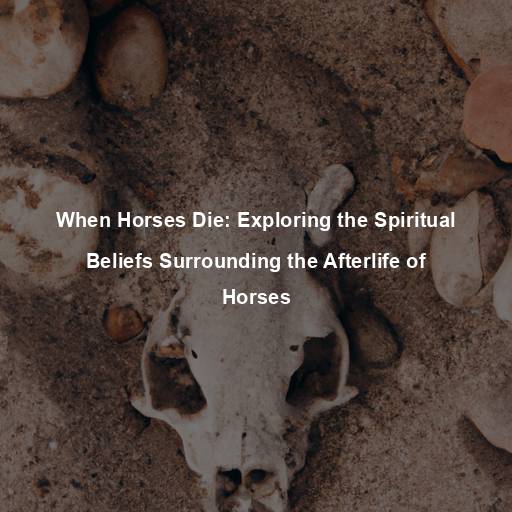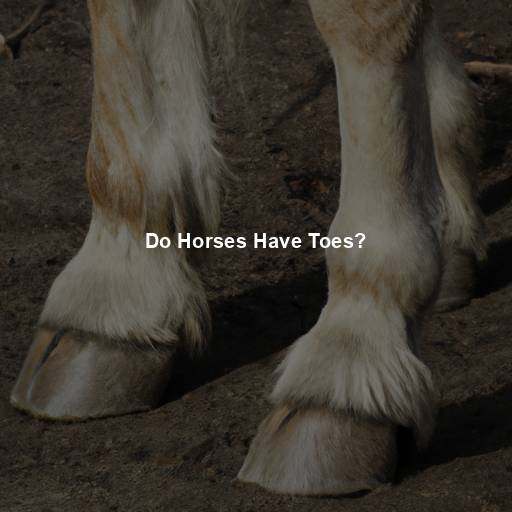What Can Horses Not Eat: A Comprehensive Guide
Last Updated on July 28, 2023 by Evan
Contents
- 1 Understanding the Dietary Restrictions of Horses
- 1.1 Toxic Plants: A Silent Danger
- 1.2 Foods Harmful to Equine Digestion
- 1.3 Dangerous Foods for Equine Health
- 1.4 Medications and Supplements: Proceed with Caution
- 1.5 Preventing Accidental Ingestion: A Responsible Approach
- 1.6 Maintaining Healthy Teeth and Gums
- 1.7 Promoting Physical and Mental Well-being
- 2 FAQs – What can horses not eat?
- 2.1 Can horses eat chocolate?
- 2.2 Are grapes safe for horses?
- 2.3 Is it safe for horses to eat potatoes?
- 2.4 Can horses consume tomatoes?
- 2.5 Are avocados safe for horses to eat?
- 2.6 Can horses eat onions and garlic?
- 2.7 Are any types of grass harmful to horses?
- 2.8 Can horses eat bread or other baked goods?
- 2.9 Is it safe for horses to consume caffeine or alcohol?
- 2.10 Can horses eat spoiled or moldy food?
Understanding the Dietary Restrictions of Horses
There’s no denying the captivating allure of horses – their sheer power, nimbleness, and elegance are enigmatic. As caretakers, we must assume the profound responsibility of providing our equine friends with a diet that is both balanced and nourishing. Although horses are herbivores by nature, predominantly feasting on grass and hay, it’s imperative for us to acquaint ourselves with the potential perils lurking in certain edibles that can be detrimental, or even fatal, to these majestic creatures. Within this all-encompassing compendium, we embark on a journey to unravel the enigma of what horses should never devour, safeguarding their enduring vitality and prosperity.
Toxic Plants: A Silent Danger
When horses roam freely in pastures, they encounter a labyrinth of vegetation, with some plants lurking as unsuspecting threats. Untangling the botanical puzzle becomes imperative to safeguard our equine companions. It is paramount for horse owners and caretakers to be familiar with the treacherous foliage, ensuring the removal of these deleterious plants to avert inadvertent ingestion that may lead to dire consequences. Here, we highlight a handful of notorious plants that should never cross a horse’s lips.
Did you know that there’s a plant out there that looks like harmless parsley, but could actually be lethal to horses? Yes, you read that right. Poison Hemlock is a sneaky little devil that can cause respiratory failure and even death if horses mistakenly ingest it. If you’re a horse owner or have horses in your vicinity, it’s absolutely crucial to stay vigilant and get rid of this dangerous plant from pastures and prevent it from contaminating their feed.
The variety and allure of Oleander’s vibrant flowers can easily captivate the attention of horses and humans alike. However, beneath its enchanting facade lies a perilous secret. This innocuous-looking plant harbors a potent toxicity that can unleash havoc upon the equine heart, leading to grave health consequences if ingested. So, be wary of this deceptive beauty and ensure the safety of your beloved horses in the face of such perplexing botanical dangers.
– Yew: Often found in landscaping, yew is extremely toxic to horses and can lead to sudden death. All parts of the plant, including the leaves, stems, and seeds, should be kept away from their reach.
Foods Harmful to Equine Digestion
The equine digestive system is a complex marvel that demands meticulous care and consideration. While not inherently poisonous, certain victuals possess the potential to wreak havoc on their delicate digestion, resulting in a perplexing assortment of health ailments. Therefore, it is imperative to steer clear of nourishing equines with the following fare:
- Avocado: Although a healthy fruit for humans, avocados can be harmful to horses. They contain a toxin called persin, which can cause breathing difficulties, colic, and even heart damage.
Did you know that your favorite kitchen staples, onions and garlic, can actually be harmful to our equine friends? These seemingly innocent ingredients contain certain compounds that can wreak havoc on their red blood cells, potentially causing anemia. To ensure the well-being and vitality of our beloved horses, it is of utmost importance to steer clear of any food that includes even a hint of onions or garlic. Let’s keep our equine companions healthy and thriving by being cautious with their dietary choices.
Dangerous Foods for Equine Health
When it comes to ensuring the well-being of our beloved equine companions, we need to be informed about not only the hazardous plants and digestion-disrupting foods, but also the specific items that directly endanger their health. As conscientious caretakers, it is vital that we avoid offering horses the following substances:
Indulgent and oh-so-irresistible to our taste buds, chocolate is a delightful creation. However, our equine friends must steer clear of this delicious temptation, as it hides a perilous secret. A compound called theobromine lurks within its delectable depths, posing a grave danger to horses. With just one bite, their hearts may falter, seizures may strike, and the ultimate tragedy of life’s cessation may unfold.
– Caffeine: Similar to chocolate, caffeine is harmful to horses and can have severe effects on their cardiovascular system. It is crucial to prevent their access to any caffeinated beverages or products.
Medications and Supplements: Proceed with Caution
In certain situations, horses may require medications or supplements to treat specific health conditions. However, it is important to exercise caution when administering these substances, as some can be harmful to horses. Here are a few medications and supplements that should never be given to horses without veterinary guidance:
Did you know that some commonly used medications by humans can have detrimental effects on horses? Non-Steroidal Anti-Inflammatory Drugs (NSAIDs) like ibuprofen and acetaminophen can potentially lead to gastric ulcers and kidney damage in these magnificent creatures if not administered under expert veterinary guidance. It’s crucial to prioritize the well-being and health of our equine friends by ensuring they receive appropriate medical care and supervision. So, let’s join hands in spreading awareness and understanding about the potential risks associated with using NSAIDs in horses.
– Human Supplements: While some equine supplements are beneficial for horses, it is crucial to avoid the use of human dietary supplements. These products are not formulated for equine consumption and may have harmful effects on their health.
Preventing Accidental Ingestion: A Responsible Approach
As horse owners, it is our responsibility to create a safe environment for our equine companions. Here are some essential steps to prevent accidental ingestion of harmful substances:
- Pasture Management: Regularly inspect pastures for toxic plants and promptly remove any findings. Consult with equine experts or local agricultural extension offices to ensure your pastures are free from dangerous vegetation.
Ensure the utmost safety for our equine companions by implementing a secure feed storage system. Shield your hay, grains, and supplements within impenetrable containers, effectively safeguarding them from the prying mouths of our curious four-legged friends. This cautious measure not only prevents any inadvertent consumption of dangerous substances but also curtails the risk of overindulgence, ensuring their well-being remains at the forefront. - Consult a Veterinarian: If you have any doubts about a particular food or medication, consult a veterinarian before introducing it into your horse’s diet. They can provide expert guidance tailored to your horse’s specific needs.
Maintaining Healthy Teeth and Gums
When it comes to the well-being of our equine friends, dental care plays a perplexing yet pivotal role. Horses, with their one-of-a-kind dental structures, have evolved to thrive on a diet rich in fibrous plants. But alas, even the most finely tuned gears can experience jarring hiccups. From sharp points to unsettlingly unequal wear, dental troubles can be quite a thorny issue for our hoofed companions.
Dental Anatomy and Function
Understanding the anatomy and function of a horse’s teeth is crucial for comprehending the significance of dental care. Horses have both incisors and molars, which serve different purposes in the chewing process. Incisors are located at the front of the mouth and are responsible for grasping and tearing grass or hay. Molars, on the other hand, are located towards the back of the mouth and are responsible for grinding and crushing food.
Common Dental Issues
Horses, majestic creatures of grace and strength, can certainly face their fair share of dental tribulations that warrant the skilled intervention of professionals. When it comes to their pearly whites, these majestic equines encounter an array of pressing concerns that demand attention and expertise. From dental maladies that plague their delicate gums to the recurring conundrums of misaligned teeth, horses are not immune to the perplexities that beset their oral health. So saddle up, dear readers, as we delve into the enigmatic world of equine dental quandaries.
Horses, with their unique way of chewing, can unintentionally accumulate sharp edges and points on their teeth, a phenomenon that may come as a perplexing surprise. These seemingly innocuous dental irregularities can surprisingly inflict distressing consequences on our equine companions. Irritation and lacerations to the delicate flesh of cheeks and tongues, ultimately resulting in unease and impaired eating, may, unfortunately, become an unwelcome reality for horses afflicted by these unforeseen dental developments.
Did you know that horses can suffer from uneven wear of their teeth? It’s a perplexing issue where their pearly whites simply refuse to align properly, causing some teeth to grow longer than others. This bizarre imbalance in their bite can lead to all sorts of chewing difficulties, leaving our equine friends feeling quite out of sorts.
Discover the untold mysteries lurking behind the majestic façade of horses. Brace yourself for a riveting journey into the enigmatic world of equine dental abnormalities. From perplexing hooks to elusive ramps and tantalizing waves, witness firsthand how these enigmatic malformations can disrupt the equine chewing experience and tip the delicate balance of their well-being. Immerse yourself in this captivating tale and unearth the secrets that lie within, as the consequences of these cloaked irregularities unravel before your eyes, unveiling a world of pain, discomfort, and potentially devastating consequences of weight loss and malnutrition if left unattended.
– Decay and Infections: Just like humans, horses can develop dental caries (cavities) and infections. These can lead to severe pain, abscesses, and even systemic infections if not addressed promptly.
The Importance of Regular Dental Examinations and Treatments
Keeping your horse’s teeth in tiptop shape is vital for their overall well-being. Regular visits from a skilled equine dentist or veterinarian ensure that any dental issues or abnormalities are timely diagnosed and addressed. By maintaining your horse’s oral health, you not only prevent discomfort and pain but also maximize their performance potential. So, make it a priority to schedule those routine dental examinations and treatments to keep your horse smiling from ear to ear.
Maintaining your horse’s dental health is of paramount importance, as regular dental examinations can proactively intercept any lurking oral issues. By promptly identifying sharp points or dental irregularities, we can mitigate discomfort and complications, ultimately enhancing your equine companion’s holistic health and happiness. Prioritizing preventative measures will undoubtedly shield your horse from unnecessary suffering and nurture their overall well-being in perplexity-free strides.
– Promotion of Proper Chewing and Digestion: When a horse’s teeth are in good condition, they can properly break down and grind food, aiding in digestion. By addressing dental issues promptly, you can ensure that your horse is able to chew their food effectively and obtain the necessary nutrients from their diet.
– Enhancement of Performance: Dental problems can impact a horse’s performance. Discomfort or pain while eating can lead to decreased appetite, weight loss, and poor condition. Addressing dental issues can help restore your horse’s ability to eat comfortably, allowing them to maintain optimal health and performance.
Dental Care Tips for Horse Owners
As a dedicated caregiver to your beloved equine companion, you hold the pivotal responsibility of preserving your horse’s oral well-being. Allow me to impart upon you some invaluable insights and notable pointers to ensure optimal dental health for your majestic steed.
Taking care of your horse’s oral health is of utmost importance. Make sure to schedule regular dental examinations with a qualified equine dentist or veterinarian who can expertly assess your horse’s oral cavity and identify any potential issues. They will be able to provide the necessary treatments and recommend preventative measures to keep your horse’s teeth in top shape.
Achieving optimal dental health for your beloved equine companion can be a perplexing task, but fear not – we have the answers! Ensuring a well-rounded diet that bursts with nutritious goodness is crucial. Consider indulging your majestic horse with a plethora of high-quality forage options, including luscious grass and nutrient-rich hay. This will not only aid in maintaining those pearly whites, but also promote healthy chewing habits, leaving your equine companion feeling satisfied and content.
Keeping a close eye on your beloved horse’s eating habits is crucial for their overall well-being. Pay attention to any peculiar signs during mealtime, like feed droppings, abnormal salivation, or reluctance to chew, as these may flag potential dental problems. Your horse’s oral health plays a vital role in their comfort and happiness, so be proactive in addressing any issues that arise.
– Maintain a Clean Environment: Keep your horse’s living environment clean and free of debris. This helps prevent the ingestion of foreign objects that could potentially damage their teeth or gums.
Taking care of your beloved horse involves more than just providing it with food and shelter. When it comes to dental health, it is crucial to adhere to the professional guidance of your trusted veterinarian. They will assess your horse’s oral condition and may suggest procedures such as routine floating to keep those sharp edges in check, extractions if necessary, or other specialized treatments to ensure your horse’s overall well-being. Trusting in their expertise can help maintain your horse’s dental health in optimal condition.
Promoting Physical and Mental Well-being
Regular exercise is vital for horses to maintain their physical and mental well-being. Horses are naturally active animals that require movement and activity to stay healthy. Exercise provides numerous benefits, including improved cardiovascular fitness, increased muscle strength and flexibility, weight management, and mental stimulation. In this section, we will delve into the importance of regular exercise for horses and explore different ways to incorporate physical activity into their daily routines.
Physical Benefits of Exercise
Regular exercise offers a myriad of physical benefits for horses. These include:
When it comes to our equine friends, it seems that the old saying holds true – a healthy heart equals a healthy horse. It turns out horses require their fair share of cardiovascular exercise to ensure that their hearts and circulatory systems are in peak form. Engaging in regular bouts of activity not only bolsters blood circulation but also strengthens the very core of their equine cardio fitness. So, next time you think it’s all about saddle up and ride, remember to take a moment to appreciate the intricate workings of your horse’s cardiovascular system.
When it comes to our equine companions, muscle development is a fascinating aspect that warrants our attention. Engaging in regular exercise is not only beneficial for horses, but it also plays a crucial role in nurturing and maintaining their muscular strength and tone. Through consistent movement and activity, the equine form undergoes an intriguing process of stimulation, ultimately leading to enhanced muscle growth, heightened strength, and ultimately, an improved overall function of these awe-inspiring creatures.
– Joint Flexibility: Exercise promotes joint flexibility and range of motion. It helps keep joints supple and reduces the risk of stiffness or discomfort.
Maintaining a healthy weight is of utmost importance for our equine companions. By incorporating regular exercise into their routine, we can assist them in burning excess calories and avoiding potential health complications associated with obesity. In this intricate dance of weight management, exercise emerges as a vital tool to keep our horses in optimal shape and wellbeing. Let us delve into the fascinating world of equine fitness and uncover the secrets to successful weight management for these majestic creatures.
– Digestive Health: Exercise stimulates the digestive system, promoting regular bowel movements and reducing the risk of digestive problems such as colic.
Mental Stimulation and Behavior
Exercise has a profound impact on horses, not just in terms of their physical well-being, but also in their mental stimulation and behavior management. Engaging in regular physical activity provides a multifaceted array of benefits, giving these magnificent creatures a holistic sense of vitality. From improving their overall health to keeping their minds sharp, exercise plays a pivotal role in the lives of horses, allowing them to thrive both on and off the racetrack. So, saddle up and let your equine companions embrace the transformative power of exercise!
- Reduce Boredom and Restlessness: Horses are naturally curious and energetic animals. Regular exercise provides an outlet for their energy, reducing boredom and restlessness that can lead to behavioral issues.
Discover the power of exercise in soothing the restless minds of our equine companions. By engaging in physical activity, horses unlock a surge of endorphins, offering respite from the burdens of stress and anxiety. This immersive experience allows them to unleash their dormant vitality and emboldens a serene equilibrium within their graceful beings. - Improve Focus and Trainability: Horses that engage in regular exercise are more focused and trainable. Physical activity helps improve their attention span, responsiveness to training cues, and overall willingness to learn.
Types of Exercise for Horses
Discover a plethora of invigorating workouts tailored specifically for our equine companions. With a wide array of options, it can be perplexing to determine the ideal fitness regimen for your horse. Consider their age, level of fitness, and unique requirements when selecting from the abundance of exercise choices available. Let’s delve into the realm of equine fitness and explore the common types of exercises that can enhance your horse’s overall well-being.
Experience the freedom and serenity of the great outdoors with our exclusive feature on “Turnout or Pasture Time”. Indulge your equine companions in the unencumbered expanse of a spacious pasture, where they can revel in the joy of unhindered movement, partake in natural grazing behavior, and forge meaningful connections with fellow majestic beings. Don’t miss out on this opportunity to enhance your horse’s well-being and embrace the transformative power of the great outdoors.
– Riding and Training: Regular riding sessions, whether for pleasure or training purposes, provide horses with both physical exercise and mental stimulation. Engaging in different riding disciplines, such as dressage, jumping, or trail riding, can add variety to their exercise routine.
Longeing, a centuries-old equestrian practice, gracefully intertwines horsemanship and physical conditioning. By guiding a horse on a lengthy lead line, riders and trainers create an enchanting circular rhythm, promoting equine poise, dexterity, and vitality. Whether executed with a jockey or unburdened by the weight, the choice of longeing ultimately hinges on the horse’s aptitude and level of schooling.
Engaging horses in groundwork exercises and obstacle courses is a fantastic way to stimulate their minds and bodies. These dynamic activities not only foster trust between horse and rider but also improve concentration and coordination. By incorporating such exercises into their routine, equestrians can keep their horses in top shape while adding an exciting element of challenge and adventure.
Safety Considerations
When engaging in exercise activities with horses, safety should always be a top priority. Here are some important safety considerations:
Just as we humans understand the importance of warming up and cooling down before and after a workout, our majestic equine companions require the same level of TLC. These crucial periods of preparation and recovery provide an essential safeguard against injuries while ensuring a gentle transition for their hearts and muscles. By giving our horses the time and attention they deserve, we can nurture their well-being and optimize their performance.
When it comes to exercise, having the right gear is crucial. Make sure your equipment and tack are in tip-top shape and properly fitted. Don’t underestimate the importance of a proper fit – ill-fitting or damaged gear can lead to discomfort, pain, or even accidents. Stay safe and comfortable by giving your equipment the attention it deserves.
When it comes to keeping your horse fit, it’s essential to take their current fitness level into consideration. Planning exercise activities that gradually increase in intensity and duration will prevent any overexertion or muscle strain. By being mindful of your horse’s fitness level, you can ensure a balanced and effective workout routine.
– Hydration and Rest: Provide access to fresh water during exercise and allow horses to rest and recover as needed. Pay attention to signs of fatigue or distress and make necessary adjustments to the exercise routine.
FAQs – What can horses not eat?
Can horses eat chocolate?
It’s absolutely crucial to keep chocolate away from horses! While devouring this sweet treat might be a scrumptious indulgence for us humans, it could lead to disastrous consequences if horses were to ingest it. The presence of theobromine in chocolate can wreak havoc on their health, causing a surge in heart rate, triggering seizures, and potentially leading to a tragic end. To ensure their well-being, let’s make sure all chocolate products are kept far away from our equine friends.
Are grapes safe for horses?
It’s no secret that horses have a unique dietary needs, so it’s important to tread carefully when introducing new foods into their regimen. Surprisingly enough, grapes fall into the category of no-nos when it comes to equine nutrition. These seemingly innocent fruits can wreak havoc on a horse’s delicate system, causing kidney damage, dehydration, and even potentially life-threatening conditions. Instead of tempting fate with this fruity peril, it’s wise to opt for safer alternatives to treat our majestic friends.
Is it safe for horses to eat potatoes?
Raw potatoes should never be fed to horses. Potatoes contain solanine, a toxic compound that can adversely affect a horse’s health. Consumption of uncooked potatoes can lead to abdominal pain, bloating, and even organ dysfunction. Therefore, it is important to ensure that horses are not given raw potatoes as a part of their diet.
Can horses consume tomatoes?
When it comes to horses and tomatoes, there’s a bit of a mixed bag. While small amounts of ripe tomatoes might not send a horse galloping towards disaster, it’s generally advised to steer clear of this crimson fruit. You see, tomatoes are part of the nightshade family, which houses some not-so-friendly compounds that can bring tummy troubles and allergic reactions to our equine friends if consumed in sizable quantities. To stay on the safe side and avoid any equine perplexity, it’s probably best to nix tomatoes from their menu entirely.
Are avocados safe for horses to eat?
It is absolutely imperative to refrain from providing avocados to our equine companions. The leaves, fruit, and even pits of this seemingly harmless fruit harbor a dangerous element known as persin, capable of inducing grave health repercussions for horses. Ingesting avocados can lead to respiratory complications, cardiac impairment, and tragically, life-threatening consequences. Consequently, it becomes a paramount responsibility to ensure that avocados remain out of horses’ grasp, preserving their well-being and vitality.
Can horses eat onions and garlic?
As horse lovers, we often want to pamper our majestic companions with delicious treats. However, it’s crucial to be aware that some seemingly harmless ingredients can have detrimental effects on their health. Onions and garlic, while delightful for us humans, are a big no-no for horses. These innocent-looking additions to their feed can actually wreak havoc on their precious red blood cells, which may lead to anemia and other concerning blood-related issues. To ensure our equine friends stay in the peak of health, it’s always wise to consult a knowledgeable veterinarian before incorporating these ingredients into their diet.
Are any types of grass harmful to horses?
When it comes to the well-being of our beloved horses, it is crucial to be aware of potentially harmful plants and grasses lurking in their grazing areas. Some culprits, like hemlock, buttercups, and wilted cherry leaves, can pose a serious threat to their health. To ensure our equine friends remain safe and sound, it is of utmost importance to conduct regular inspections, implement effective weed control measures, and seek guidance from qualified equine nutritionists or veterinarians. With their expertise, we can navigate the perplexing world of toxic plants and create a sanctuary for our horses to graze without any worries.
Can horses eat bread or other baked goods?
When it comes to treating our four-legged companions, it’s important to tread cautiously in the realm of bread and baked goods. While a nibble here and there may seem harmless, these treats can be quite the tough nut for a horse’s digestive system to crack. Packed with sugar and starch, they can leave our equine friends feeling a bit queasy, possibly resulting in tummy troubles, colic, or laminitis. That’s why it’s wise to stick to their specially designed menu of equine feed, rather than filling their bellies with human goodies.
Is it safe for horses to consume caffeine or alcohol?
It’s hard to believe, but some people actually consider giving caffeine or alcohol to horses. Yes, you read that right – caffeine and alcohol are being discussed as potential additions to equine diets. But let’s set the record straight: these substances have no place in a horse’s life. Not only can they wreak havoc on a horse’s nervous system, but they are simply not part of their natural diet. To ensure the well-being of these majestic creatures, it’s crucial to steer clear of caffeine or alcohol-containing products when it comes to horses. Just stick to the basics, folks.
Can horses eat spoiled or moldy food?
Feeding horses any kind of spoiled or moldy food is simply a big no-no. Such food may contain harmful toxins like aflatoxins, which can wreak havoc on a horse’s well-being, potentially causing liver damage, colic, or even bringing about the grim specter of death. It’s of utmost importance to stay vigilant by regularly inspecting the feed and ensuring its freshness, because you never know what kind of uninvited guests might be hiding amidst the chow. And remember, when in doubt, it’s better to err on the side of caution and toss out any moldy or spoiled feed – trust us, your horses will thank you for it!






